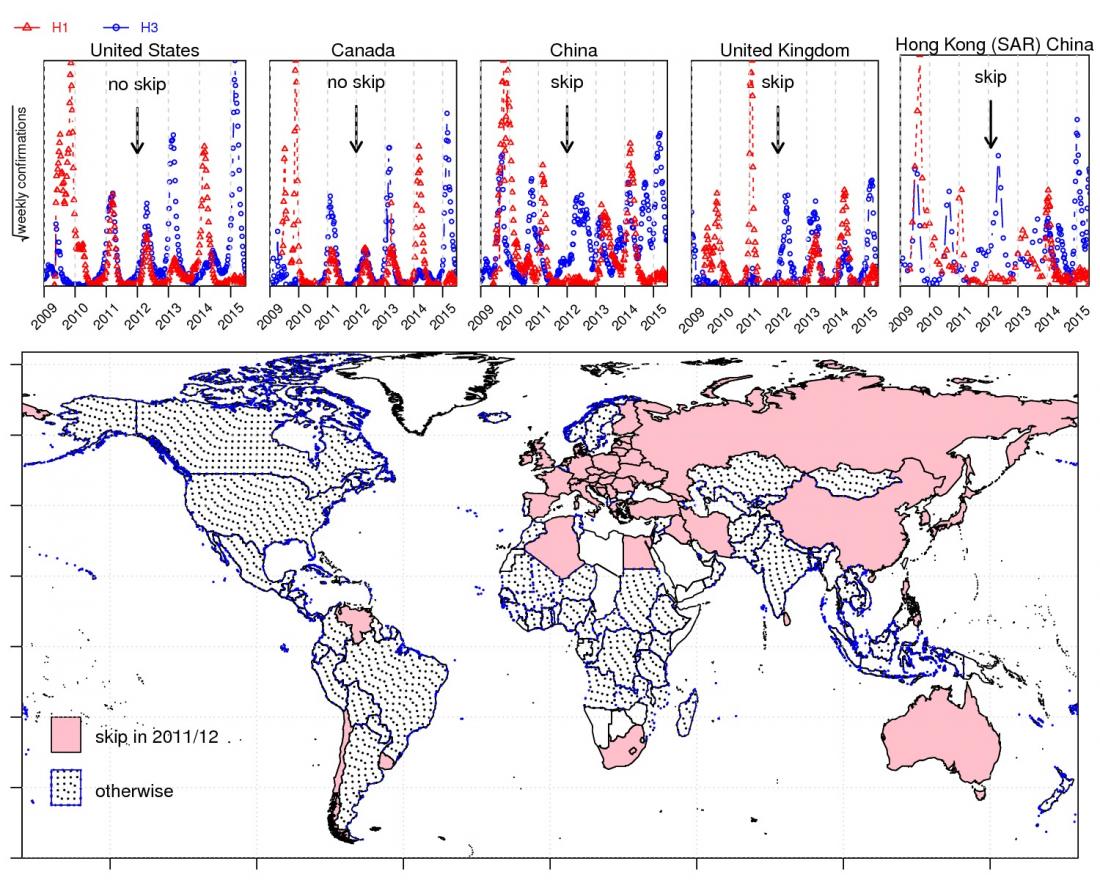The researchers mapped the waves of H1N1 infection across the world and compared them with the waves of H3N2 infection.
H1N1, commonly known as “swine flu,” was a new flu strain that appeared in 2009 and quickly spread around the world, killing thousands of people. It is now a regular part of the annual flu season.
Researchers in China, Australia and the United States used a mathematical model to map the spread of different flu strains between 2006 and 2015 and found H1N1 spread in a “skip and resurgence” pattern in Europe and Eastern Asia. H1N1 was expected to hit again in 2011/12, but no outbreak materialized in these regions. It skipped that year, but came back the next season.
Fundamental epidemiological theory explains this pattern. After the first waves of infection, the population built up immunity and the virus could not explode. But immunity wore off after a couple of years, so enough people were once again susceptible in 2013.
The skip and resurgence pattern was observed throughout Europe and Eastern Asia, including the United Kingdom and China. However, North America was noticeably different; there was no skip year there.
The researchers suspect different vaccination policies may play a role.
In Europe, less than 30% of the population gets vaccinated against the flu, compared to almost 40% in the United States and 30% in Canada. Despite its higher vaccination rates, North America had a much higher incidence rate and associated mortality of H1N1 in 2009 than Europe. The researchers believe that vaccination against another major seasonal influenza strain, H3N2, might have slowed the spread of H3N2, reducing competition with H1N1, thus allowing it to gain a larger foothold in the population.
The researchers stress that their results do not justify people avoiding vaccinations. “Vaccination is still the most efficient way to protect humans against the flu,” says applied mathematician Daihai He of The Hong Kong Polytechnic University, who led the study. “More in-depth study on the impact of vaccination policy, more accurate prediction of future dominant strains and the design of better vaccinations is urgently needed.”
The results of this study were published in Scientific Reports in 2015.
For further information please contact:
Dr Daihai He
Department of Applied Mathematics
The Hong Kong Polytechnic University
E-mail: [email protected]



